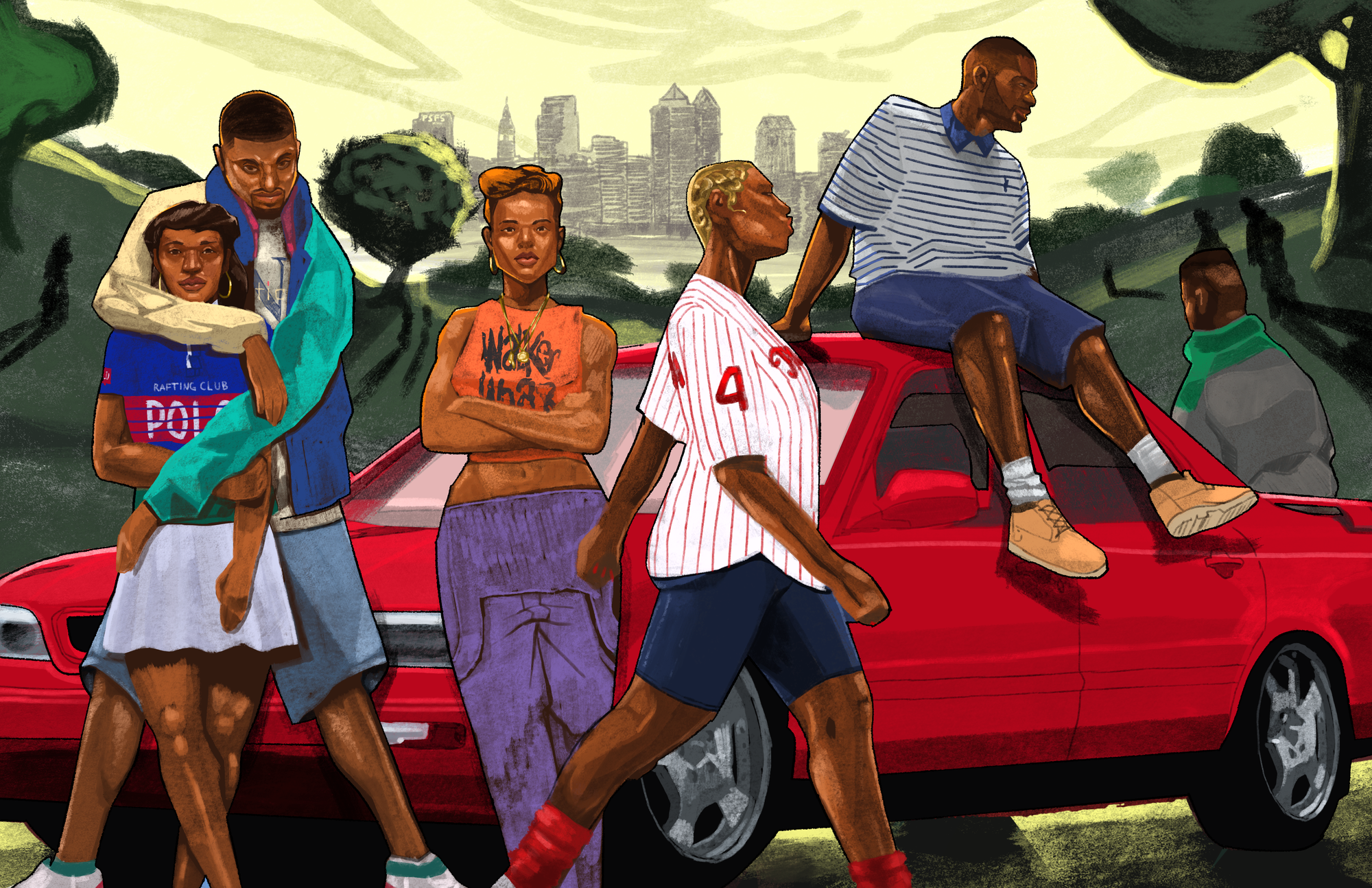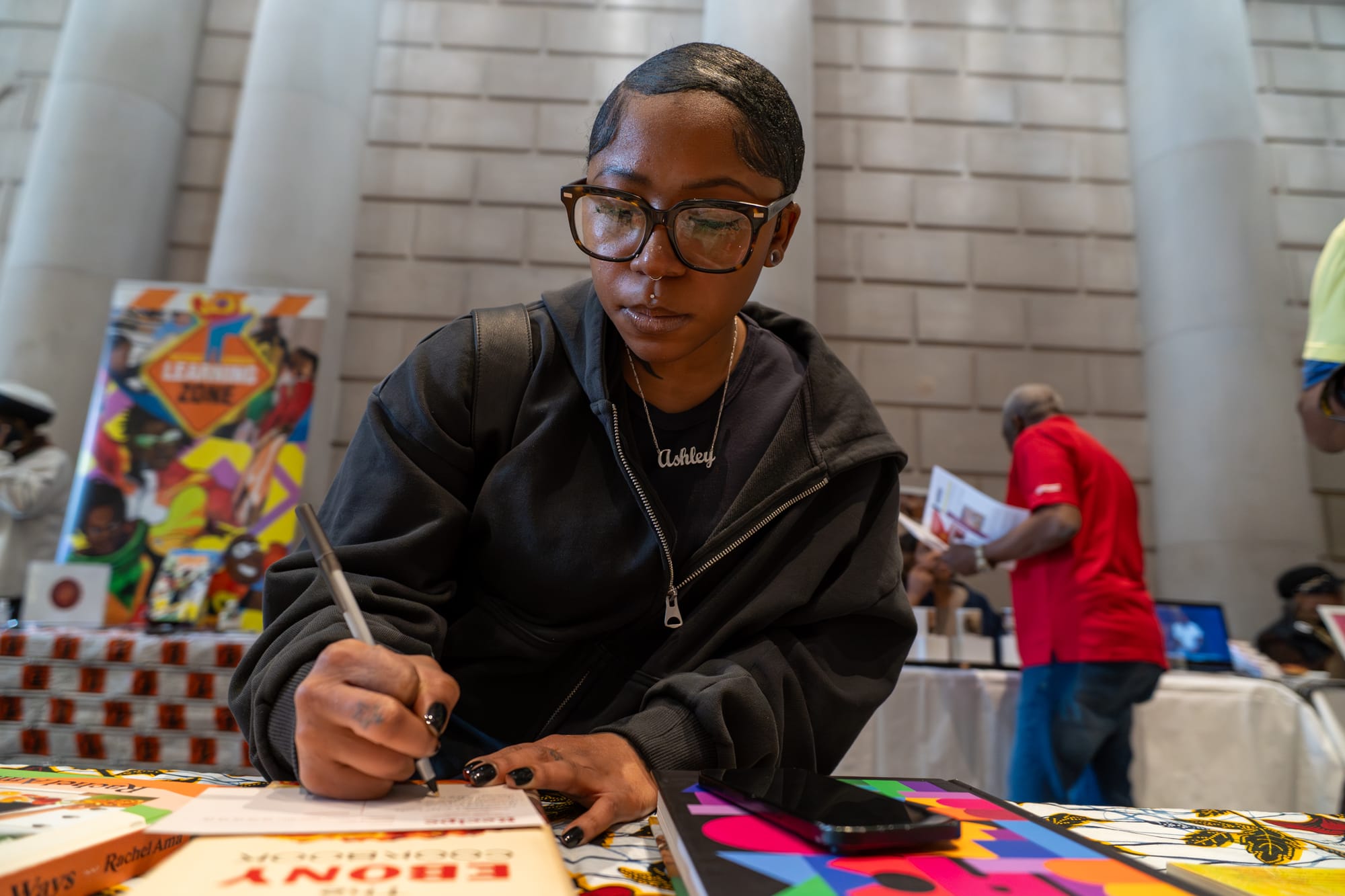“I will NOT let these people step on my joy”: Ta Nehisi Coates on Truth Telling
king waves. The final section of the book was a journey to hear directly from Palestinian people. This journey was taken some time before the recent human rights atrocities happening now.
Ta Nehisi Coates visited Philadelphia just a few weeks before the election for a fireside chat with Marc Lamont Hill. The sold out fireside chat, in collaboration with Uncle Bobbie’s Books and WHYY took place in the Chapel of Girard College and felt less like a fireside chat and more like a service. The sacred space of the school felt filled by deep truths and searing commentary by both Hill and Coates discussed in such a transparent way.
Coates is well known and well awarded in the literary and journalistic community. Yet none of his works have caused as much discussion as his newest book, The Message. The Message is a journey Coates takes to discuss liberation, oppression, and the stories of oppressed people. His journey takes him to Senegal, his first trip to the continent of Africa, where he experiences painful grief as a descendant of chattel slavery. His journey takes him to South Carolina where he is confronted with the banning of his own work and the silencing of Black stories.
But none of those journeys, despite being half of the book, are the sections making waves. The final section of the book was a journey to hear directly from Palestinian people. This journey was taken some time before the recent human rights atrocities happening now. Coates went to see the conditions Palestinian people were living in and to listen to their own stories for himself.
That alone was enough to cause the firestorm now surrounding Coates’ work. In a recent interview on CBS News, Tony Dokoupil said “I have to say, when I read the book, I imagine if I took your name out of it, took away the awards, the acclaim, took the cover off the book, publishing house goes away, the content of that section would not be out of place in the backpack of an extremist.”
That interview, where Gayle King and Nate Burleson attempted to break the tension, may have caused a frenzy, Coates was ready. While retelling the CBS incident during his visit in Philly, all Coates could do was laugh. “There is a part where she (King) tried to jump in,” laughed Coates. “But I was like ‘No, no, no. Don’t try to save him.’ We are in a fight now. I was happy. I was amped. I was good. It was not until I got home that I realized people had a different experience.”
When Hill asked Coates about the potential to face backlash from his commentary in The Message, Coates and his editorial team were not only “wide eyed” about the potential, he personally resolved to tell the truth regardless of that potential. “Don’t cry for me, man,” Coates says. “You can take the awards. You can take the accolades, you can strip the cover off the book. But you still gotta see me. You know what I mean. I’m still me. Those things are nice but they are not me.”
One thing is clear. Coates, regardless of the awards he receives, the accolades he achieves, or the big press moments that propel his work further, is true to the craft of writing. “I think the thing that is most important is that I really like to write,” I enjoy the activity of writing. I will not let these people step on my joy.”




